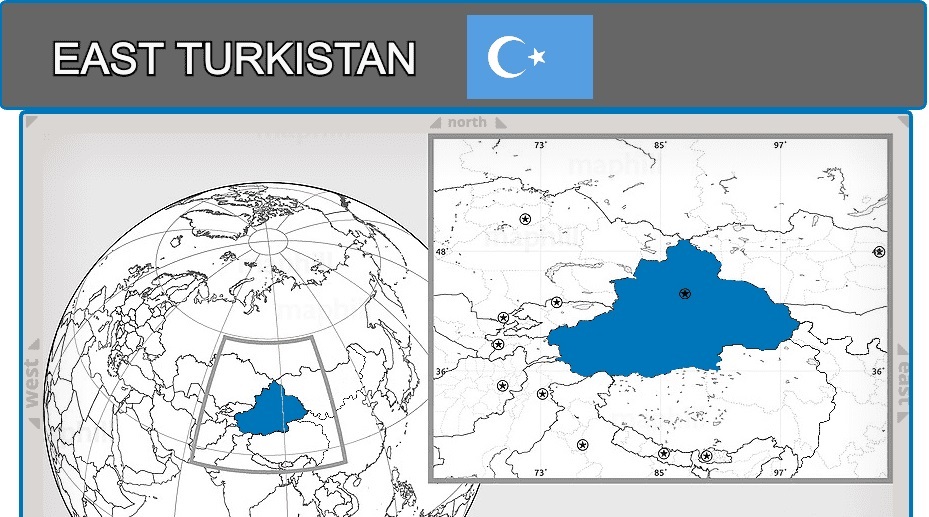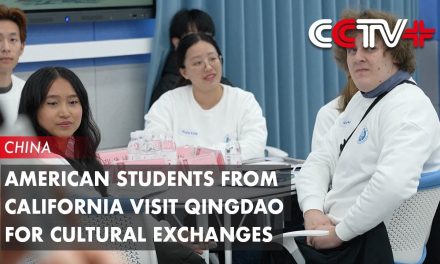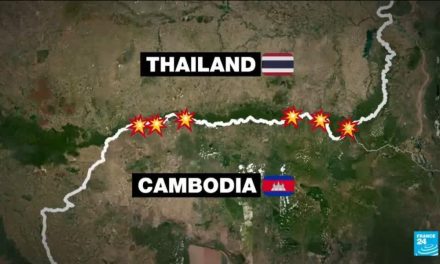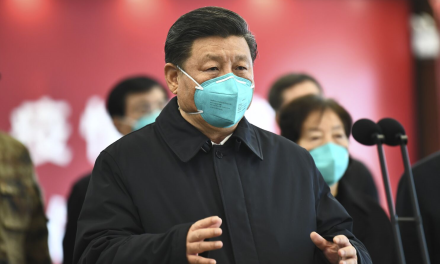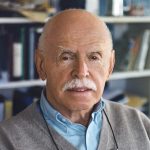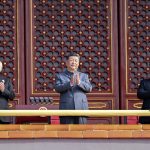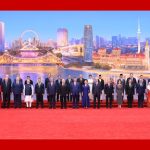By Yang Zili
Editor’s note: The author is a Chinese liberal, who while not from Xinjiang is of Muslim ancestry himself. Here he expresses a liberal’s skepticism of Uighur nationalism, preferring instead a liberal China, a necessary condition for decent government inside and outside of Xinjiang. “Sword” and “shield” are each half of a Chinese word for “contradiction.”
In his “As we pursue freedom, we also pursue independence,” Ilshat Hassan Kokbore [an exiled Uighur activist] writes of the aspirations of many Uyghurs. Especially after learning about the fact that family members they have lost contact with have been detained by the Chinese Communist government in Xinjiang for many years, readers are better able to understand the ideals and beliefs of Uyghur intellectuals in his situation.
But my understanding also includes doubts about the prospects of Uyghur independence. I believe that there are many people who have the same doubts as I, so I write about these doubts not only to remind Mr. Ilshat and his Uyghur colleagues to think more deeply about the political goal of independence, but also to ask them for some advice.
When I had an online debate with Mr. Ilshat not long ago, I raised a few questions. Here they are in summary:
- Today’s West Turkestan, that is, the five states of Kazakhstan, Kyrgyzstan, Tajikistan, Uzbekistan, and Turkmenistan to the west of Xinjiang, have already achieved independence. However, not only are their political freedoms about the same as China’s, their economies are not even as good. And these are much closer to monoethnic states then Xinjiang/East Turkestan. So after East Turkestan becomes independent, how can it become more democratic, more stable, better protect human rights, and have better economic development than Western Turkestan despite being internally multi-ethnic?
- If East Turkestan has the right to establish an independent country based on the principle of national self-determination, then the Han, Kazakh, Hui and other ethnic groups in East Turkestan become minorities there, Do they also have the right to establish a smaller state within a state based on the principle of national self-determination?
- If East Turkestan becomes an independent country, how will the border with China be determined? It is certain that it will not be easy to find a common boundary for this kind of separation. So how to prevent violent conflicts arising from the struggle over territory?
- Xi Jinping’s repressive policies in Xinjiang have led to ethnic estrangement and hatred between Uyghurs and the Han people. If East Turkestan becomes an independent country, how can we avoid something like the civil war that occurred in Bosnia and Herzegovina after the disintegration of Yugoslavia also occurring between the Han and Uyghurs in East Turkestan, due to their prior resentments?
There is actually no answer to these questions if we use traditional thinking about establishing a nation-state. Mr. Ilshat mentions that he wants to build East Turkestan into a democratic country like the United States. That is of course very good, but that means giving up the ideal of establishing a Uyghur nation-state and giving up the introduction of Sharia law in the constitution. This is because the United States is a country where everyone is equal regardless of race or religion. Although the descendants of white European immigrants make up the majority of Americans, other races do not feel as though they are living in a foreign land; although Christianity is the mainstream religion, all religions are equal under the law. If what Uyghur intellectuals are working so hard to build is a melting-pot country of various races like the United States, then whether to separate from the Chinese depends on the situation, since China itself could also become a melting-pot democracy like the United States. And so us consider another possibility. If the Uyghur people in the end establish a relatively pure nation-state with Islam at the center, it will not be a country like the United States, but more likely to be like the current Western Turkestan countries.
Even if East Turkestan becomes a nation-state like Kazakhstan, it does not mean that all the problems faced in establishing a country can be expected to be solved. The first is the border issue. Mr. Ilshat mentioned that the current borders of China’s Xinjiang Uyghur Autonomous Region should be used as the national borders of his future country. Obviously, there are a large number of Han Chinese who have settled inside this border, and they will not agree to leave voluntarily. If local self-determination is required, it can be expected that these Han people will not be willing to share an East Turkestan with the Uyghurs. They may prefer to share a China with the Han people in the interior. If the East Turkestan government wants to drive them away, another fierce and cruel civil war will break out. Therefore, if the Uyghurs insist on establishing a nation-state like those in Western Turkestan, the only possibility is to establish a nation in southern Xinjiang where the Uyghurs live together. But so far, it seems that no Uyghur organization has publicly declared this. This is not surprising. Among the forces advocating for independent nation-building, whoever advocates for a smaller territory will face accusations of “selling out our land,” and will naturally not become a leading force.
Second, demographic and other issues present similar dilemmas. The more radical the goal, or the more the goal is to satisfy the interests of the Uyghur nation to the greatest extent, the more influence such views will have. For example, the view that at least some Han people should be expelled is more popular than that of retaining all Han people. Giving citizenship to all remaining Han people is inferior to only giving citizenship to some of them; using Uyghur as the only official language in East Turkestan is better than declaring Uyghur, Chinese, and Kazakh to be such jointly. It would be better if they were all official languages. Overall, the words of safeguarding Uyghur sovereignty and territory even at the risk of war are obviously more powerful than the voices for peaceful negotiations and compromise. Unfortunately, in practice, those ideas that appear conservative, compromising, not radical, or even seem to betray collective interests are often more feasible. This is true not only of national-independence movements, but also of almost all confrontational movements.
It may be a good thing if a nation can achieve national independence peacefully. But is it worthwhile if it costs a great deal of lives and property? Even when it is possible to fail to achieve the goal without paying a huge cost, and instead falling into the century-old hatred and killings among Palestinians and Israelis, is national independence still the ideal of highest value?
According to the CCP’s propaganda when we were children, “national independence” was the most lionized term other than “communism.” Mao Zedong announced at Tiananmen that the Chinese people had stood up, which became the thing that almost all Chinese were most proud of. But it was only Mao Zedong and the Communist Party who stood up. China’s vast majority of the Han population suffered far more Mao Zedong, a Han himself, than under the Manchu Qing Dynasty, when it suffered merely an abstract “national” oppression. Today, as Xi Jinping proposes the “Great Rejuvenation of the Chinese Nation,” he also wears the label of nationalism. However, is national independence really more important than universal values such as freedom, democracy, human rights, and the rule of law? Think about the dictators of modern times. Almost all dictatorships wave the banner of nationalism, and dictators have become the very symbols of national independence, whether it is Russia’s Vladimir Putin, three generations of the Kim family in North Korea, Iraq’s Saddam Hussein, Libya’s Gaddafi, Serbia’s Milosevic, Bashir of Sudan, etc. This is without exception true, and the reason why I say “almost” is simply because some dictators wave other banners such as those of communism or Islamism. But they also at the same time wave that self-proclaimed nationalist banner.
When a country has truly achieved equality and democracy for everyone regardless of religion, race, or class, what does it mean beyond that for that nation to become independent? Today, the entire United Kingdom has achieved freedom and democracy. So, does Scotland remaining in the United Kingdom, or becoming an independent country, have any obvious impact on the life happiness of Scots or other English people? It can be said that the answer is no. The only ones who really care are those who either love or hate the concept of Scottish independence.
National independence, sovereignty, and territorial integrity are not meaningless. In addition to the stability pursued internationally, the greater value lies in defending the free and democratic way of life. If Taiwan is unified by the Chinese Communist Party, then today’s Taiwanese people will lose their freedom of speech, lose the rights to democratically choose elected parliamentarians and other officials, and lose judicial independence, just like the Chinese people on the mainland. Correspondingly, there will be corruption caused by the required obeisance to “the party leads everything.” There will be injustice, opaque government, polarization between rich and poor, loss of social security for vulnerable groups, intensification of social conflicts and other negative consequences. Therefore, today’s Taiwanese independence serves the the just cause of defending democracy. This is also the reason why democratic countries in the world oppose the CCP’s attack on Taiwan. But if the mainland were already democratic, and the people on the mainland already enjoyed freedom and democracy as well as the justice and prosperity it brings, naturally the mainland regime would not attack Taiwan to achieve so-called reunification, and the Taiwanese people might think that actually reunification is a good option. But Taiwan under such circumstances would be like Scotland today. Whether it was unified or not would not actually mean much.
Ukraine is another example. Ukrainians do not want to live the life of Russians, ruled by dictator Vladimir Putin. They want to enjoy freedoms and human rights like people in European democracies. So when Russia invades, Ukrainians defend their motherland’s sovereignty and territory to defend their own freedom and democracy.
Therefore, if the entire country has freedom and democracy, whether to achieve the independence of a nation is of little significance, and it is not worth engaging in national struggles after the establishment of a democratic and constitutional system. Because even if the national struggle is victorious, the best result is the realization of freedom, democracy and equality for more people, while the worst result is the emergence of a nationalist dictatorship. If the national struggle is not victorious, it may result in huge losses of life and property or even a national vendetta that will last for many years.
Mr. Ilshat’s article spends a lot of time describing how the Uyghurs have been enslaved and oppressed by the central Chinese government, from the Qing Dynasty through Xi Jinping’s rule. Regardless of the degree of enslavement and oppression, any authoritarian regime is always for the benefit of the minority. Although the Han people are the majority of Chinese people, they were also an oppressed ethnic group under the Qing regime. You cannot use the fact that you have a long history of oppression by the central power to prove that no matter what kind of central power you have in the future, you will not engage in the same kind of national oppression. A more disturbing reality is that only an autocratic central power can implement national oppression, class oppression, religious oppression, gender oppression, etc., while a democratic central power exists precisely to protect the freedom and equality of every citizen in the territory. Look at the United States. Although states have huge autonomy, the basic laws protecting the personal rights and equal rights of American citizens still rely on the federal government.
History should be interpreted from different angles, but also symmetrically, from different standpoints. If each side has its own historical narrative about the Palestinian-Israeli conflict, the bloody conflict will never be resolved. What’s more, it is meaningless to investigate whose ancestor is right or wrong after more than 100 years of history. Do the descendants of those Buddhist countries before Islam conquered Central Asia and the Western Regions have the right to return to their countries? Genghis Khan slaughtered so many, where are the descendants of the Xixia and Khwarezm people? When Qianlong conquered Junggar, did the few remaining descendants of the Junggar people who escaped have the right to resume their rule over the surrounding areas of the Junggar Basin? History should not serve the interests of particular contemporary factions, but should provide humanitarian lessons.
The article at one point says, “We are Uyghurs, not Chinese. We have never been and will never become Chinese. We have our own unique Uyghur-Islamic culture. We have never belonged to the Chinese cultural circle, and we will not and do not want to become part of Chinese culture. Our Uyghur cultural identity has nothing to do with Chinese culture.” It should be said that this may represent the thinking of quite a few or even the majority of Uyghurs. In other words, whether the Chinese are a dictatorship or a democracy has nothing to do with us Uyghurs, and you Chinese should not interfere in the internal affairs of our future country. As a belief and an attitude, this is freedom of expression and freedom of will, but if it is to be implemented in practice, it is not that simple. The author has said that the Uyghurs who want independence do not just want to establish a few small countries in the inhabited areas where the Uyghur population has an absolute majority, but they want to establish a “grand unified” East Turkestan in the entirety of today’s Xinjiang. In the future, the Chinese-speaking Han, Hui, Dongxiang, Salar and other ethnic groups in East Turkestan may be inextricably linked to China. How can the Chinese outside ignore such a campaign ? Do Europeans and Americans, with no direct interests in the matter, have the right to say something if human-rights violations occur in this “unified. East Turkestan? The author may say that we Uyghurs have a big heart and will not do such, and that even if national oppression occurs, there will be no religious or gender oppression. Although Mr. Ilshat advocates “Xinjiang independence,” he can be believed to have basic humanitarian values. But don’t forget that if an independence movement does occur, the people with the most leadership authority will not be moderate intellectuals like Mr. Ilshat, but people who will lead the Uyghur people to fight against the Han people with real swords and guns, and religious leaders who advocate the establishment of an Islamic state. The more extreme the slogan, the more authoritative it is. You can understand this if you think about how Hamas today has the support of the majority of the Palestinian people. Therefore, although Mr. Ilshat wants to build a unified East Turkestan into a democratic and inclusive country like the United States, the one who ultimately gains the upper hand may be the religious leader who wants to turn East Turkestan into Afghanistan.
“The pursuit of freedom and independence is an ideal pursued by all the ethnic groups in East Turkestan since the beginning of modern times, and they have sacrificed their lives and blood for this ideal. Since the end of the 19th century, countless Uyghurs with lofty ideals have sacrificed their lives for this ideal.” These are words full of passion, moving. If “East Turkestan” is replaced by “China” and Uyghurs are replaced by “Chinese nation,” isn’t this exactly the great patriotic sentiment that the Communist Party instilled in us every day when we were children? And on the surface, the CCP too has not given special prominence to the Han, and seems to be more tolerant. And so if the history and logic are so similar, how can one believe that the actual “Great Unification of East Turkistan” by the Uighurs will be any different from the actual “Great Unification of China” led by the Han people? Since they have the same reasoning, can it be said that all nationalists actually believe that “those who are not of my race must have different minds?”
If there is any justice in pursuing freedom and independence by the shedding of blood and making great sacrifice, all of it lies only in the pursuit of freedom. Whether there is justice in pursuing independence depends on whether independence is struggled for to escape tyranny. In the final analysis, human rights are greater than sovereignty. When human rights cannot be protected, the pursuit of sovereignty is not only unhelpful but may be harmful. The pursuit of sovereignty is valuable only for the purpose of defending human rights. And there is a paradox here. The CCP is now a tyranny. If the Uyghurs pursue independence now, there is still a certain degree of morality, but there is no current possibility of bringing it about. When democratization occurs in the future, the central government will no longer suppress the people so easily, which means that it will no longer be a tyranny. At that time it will be feasible to achieve independence, but whether justice can be achieved at that time will be questionable.
Mr. Ilshat wrote another article previously, called ‘We want to restore independence, not be merely ‘separate’!” Here he mentioned that declaring independence when an empire collapses is the best choice. What if Communist-ruled China does not collapse but is undergoing a democratic transition? If you put independence first, you may feel that it is easiest to achieve independence when the transition has just been completed, because a democratic-led central government will not send troops to suppress it, for the sake of both international support and its own democratic stance. But this will have two possible consequences. One is that those who hold local military power may ignore the newly formed weak central government and suppress rights on their own. The other is that the weak central government is overthrown by powerful figures. Either result may not achieve the independence movement’s goals. But if the Uyghur nation cooperates with the democrats, then the central government after democratization will be stable and will have enough ability to prevent the military from suppressing the people for expressing political demands, and at the same time can make procedural arrangements for independence demands, e.g., referendums, and negotiate to resolve specific territorial issues.
With so many doubts and objections mentioned here, Mr. Ilishat may think that I am poisoned by the Chinese Communist Party’s external propaganda and therefore oppose East Turkestan’s independence. But isn’t the logic of using nationalism against nationalism itself problematic? Are my thoughts only shared by dissidents who have escaped from China? Do most of the university professors and scholars in research institutes in the United States and Europe support East Turkestan independence? Even apart from the question of political stability, I believe that most of them, like me, do not agree with nationalism, whether it is Chinese nationalism or East Turkestan nationalism.
Even those who regard the independence of the Uyghur people as their highest ideal in life cannot answer the above questions, there is no need to mourn too much. Now the Shanghai Manchuria independence movements are booming in the United States, and East Turkestan independence is much more powerful than these. If you don’t want to just stop at slogans, then the preparation you need to engage in may be to observe the attitudes of countries around the world, investigate the population distribution of that area, communicate with Chinese people who sympathize with the suffering of the Uyghur nation, and then draft a constitutional democratic system that guarantees equality for everyone, study feasible territorial divisions, and consider issues such as the requirements for ethnic minorities in the region to establish a state within a state. Only when these preparations are done can the ideal of national independence be realized.
If the pursuit of independence is done only for the human rights and freedom of Uyghur compatriots, then there is no need to regard national independence as the highest ideal in life. Wouldn’t it be more straightforward and more popular with the international community to regard the realization of the human rights and freedom of these compatriots as the highest goal? What’s more, at a time when the Chinese Communist Party is persecuting Uyghurs’ human rights, this kind of struggle for human rights is more just, more internationally sympathetic, and more feasible.
Compared with the desire to establish an independent nation-state without concern over bloodshed and what will be sacrificed that is expressed in Mr. Ilshat’s article, His Holiness the Dalai Lama’s middle path is obviously more pragmatic. Today’s civilized world regards human rights, especially human life, as the most important value and goal. Not being afraid of bloodshed and sacrifice in the course of personal heroism is worthy of respect. But not fearing bloodshed and sacrifice in the course of attempts if to achieve a certain political goal, even if it is to overthrow a tyranny, is not. Bloody revolutions are not respected in the international system dominated by democratic countries, not to mention that sacrificing the lives, health, and property of ordinary people for nationalism is similar to doing so to achieve religious or class dictatorship, and will not be supported.
To sum up my view, in one sentence: Whether a nation is independent or not is not important in the least. How to establish a democratic system that guarantees equality and freedom for everyone is instead the first priority.
This piece was translated from Yibao Chinese. If republished, please be sure to add the source and link https://www.yibao.net/?p=247938&preview=true before the text when reposting.
The author’s point of view does not necessarily represent that of this journal.

